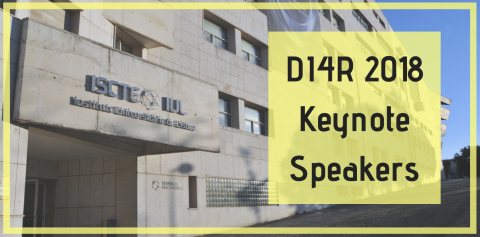Opening Plenary
Date:
Wednesday, September 28, 2016 - 09:00
|
Lukasz Dutka Organisation: Academic Computer Center. CYFRONET AGH |
|
Presentation: "The European Open Science Cloud in 2017 and beyond" By adopting a service orientation and contributing to the provision of a comprehensive catalogue of services, eInfrastructures will accelerate the deployment of the EOSC for the benefit of all European Researchers. |
|
 |
Augusto Burgueño Arjona Role: Head of the Unit "eInfrastructure & Science Cloud" Organisation: European Commission's Directorate General for Communications Networks Dr. Augusto Burgueño Arjona is currently Head of the Unit "eInfrastructure & Science Cloud" at European Commission's Directorate General for Communications Networks, Content and Technology. His unit coordinates the implementation of the European HPC strategy as well as the deployment of European research eInfrastructures such as Géant, PRACE, EUDAT, OpenAIRE and the European Grid Initiatiave (EGI). Previously he served as Head of Unit for “Finance” in the same directorate-general and as Head of the inter-Directorate General Task Force IT Planning Office at European Commission. He has a PhD degree in Formal Methods in Computer Science from Ecole Nationale Supérieure de l'Aéronautique et de l'Espace (Toulouse, France), an MBA from Rotterdam School of Management (Rotterdam, The Netherlands) and master degrees in Artificial Intelligence and Software Engineering from University of London (UK) and Universidad Politécnica de Madrid (Spain), respectively. |
|
Presentation: “The brain, the universe and the need for integrated infrastructures” |
|
 |
Karlheinz Meier Role: Professor of Experimental Physics Organisation: Department of Physics and Astronomy, Heidelberg University Karlheinz Meier holds a diploma and a PhD in Physics from Hamburg University. During the last 30 years, he has contributed to several major particle physics experiments at DESY and CERN, specifically: JADE at PETRA, UA2 at the CERN Proton-Antiproton Collider, H1 at the HERA Electron-Proton Collider and ATLAS at the LHC. He also contributed to European initiatives in detector research, notably the RD1 and RD27 collaborations at CERN. Meier is the founding director of the Kirchhoff Institut für Physik and of the Laboratory for Microelectronics at Heidelberg. Since 2011, he has been director for neuromorphic computing of the EU HBP FET Flagship Project. Based on his experience of designing and running custom electronic data filters ('triggers') for particle detectors and the establishment of the Heidelberg ASIC Laboratory in 1994, he initiated and developed a new line of research in Heidelberg. An overview of his publications from this work can be found in INSPIRE.
|
Download presentation:



